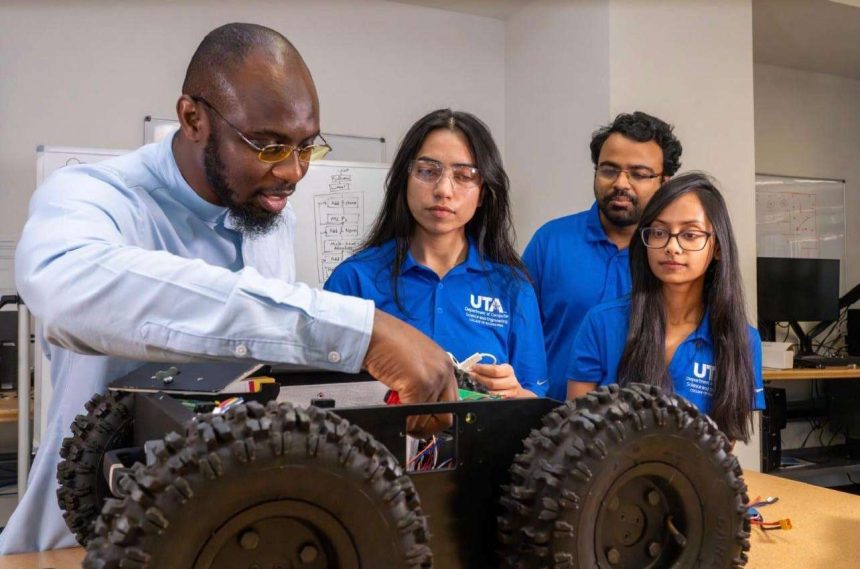A Nigerian computer scientist has been awarded the highly competitive National Science Foundation (NSF) CAREER Award for pioneering research into the cybersecurity of autonomous vehicles, in a significant step toward safeguarding future transportation systems.
Dr. Habeeb Olufowobi, a faculty member at the University of Texas at Arlington’s (UTA) Department of Computer Science and Engineering, received a grant of $598,895 for his project titled “Securing Connected Autonomous Vehicle Stack Against Adversarial Input.”
The research aims to develop more resilient self-driving cars capable of detecting, resisting, and recovering from cyberattacks, an increasingly urgent challenge in the age of connected mobility.
“This important work will help make the cars of the future smarter, safer, and more resilient,” said a statement from UTA’s Computer Science and Engineering department.
What Is the National Science Foundation (NSF)?
The NSF is an independent federal agency of the United States government, created in 1950, that funds research and education in all non-medical fields of science and engineering. It plays a crucial role in promoting innovation, scientific discovery, and STEM education in the U.S. and globally.
What Is the CAREER Award?
The Faculty Early Career Development (CAREER) Program is one of the NSF’s most prestigious awards, given to early-career (typically pre-tenure) faculty members who:
- Integrate research and education in innovative ways.
- Demonstrate promise as future academic leaders.
- Conduct groundbreaking, high-impact research, and
- Engage students and the public through education and outreach.
Addressing a Growing Threat in AI-Powered Mobility
Dr. Olufowobi’s work zeroes in on the inherent cybersecurity vulnerabilities within the complex ecosystem of autonomous vehicles.
These vehicles depend on an intricate web of sensors, cameras, communication networks, and control systems, all of which are potential entry points for malicious actors.
His research will examine:
- How adversaries can disrupt perception and communication systems
- How vehicles can detect and respond to attacks in real-time
- Ways to maintain safe vehicle operations during a breach
Mechanisms for rapid system recovery after a disruption
As the global automotive industry races toward full automation, experts warn that overlooking cybersecurity could pose life-threatening risks. A compromised system could misinterpret traffic signals, alter routes, or even disable braking functions.
A Milestone for Minority Representation in STEM
Dr. Olufowobi’s achievement is notable not only for its technical depth but also for its broader impact.
The NSF CAREER Award is one of the most prestigious honors for early-career faculty in the United States, designed to support those who exemplify the role of teacher-scholars through research and education.
Born to Nigerian parents and educated in the U.S., Dr. Olufowobi joins a growing cadre of African and African-diaspora scientists breaking barriers in high-stakes technology fields.
His grant also supports educational outreach, aiming to inspire the next generation of cybersecurity professionals and diversify participation in STEM fields.
Why It Matters
The rise of connected and autonomous vehicles (CAVs) promises to revolutionize mobility, but not without risks.
A 2022 McKinsey report estimates that by 2030, more than 15% of new cars sold globally will be fully autonomous. With this increase comes a wider attack surface for cybercriminals and state-sponsored actors.
Experts say projects like Dr. Olufowobi’s are critical to preparing infrastructure and policy frameworks for an autonomous future





